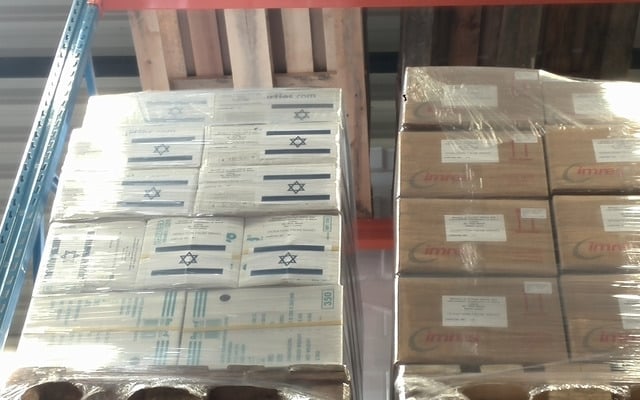After securing its borders, Israel is intensifying its efforts to provide assistance to the international war on the Ebola virus outbreak in Africa.
Israel is calling upon its citizens to join the global effort to combat the outbreak of the Ebola virus, which has claimed thousands of victims in Western Africa over the course of 2014.
After securing its borders and preparing for a possible entry of the virus into the country, Israel, through its MASHAV agency for international development and cooperation, which has already begun to provide assistance to the region and is preparing to intensify its efforts.
The Israeli government aid includes the deployment of mobile field hospitals to Liberia, Sierra Leone and Guinea, with emphasis on isolation units and protection gear to allow medical professionals to quarantine and care for their patients.
Community Action
MASHAV and SID-Israel, the Israeli branch of the Society for International Development, have invited Israeli NGOs interested in taking part in efforts in the field and marshaling resources to take part in an inaugural meeting of the Israeli Forum to Combat Ebola, sponsored by the Israeli Fund for UNICEF (IFU) and SID-Israel, which will take place on Sunday, November 25.
The meeting will be held at the Israel Foreign Ministry, during which the Israel Forum to Combat Ebola will be established under the auspices of MASHAV.
IsraAid, an Israeli NGO committed to providing life-saving disaster relief and long-term support to persons in need around the globe, has already joined the battle against Ebola and is providing training on trauma and stress management for hundreds of government and non-profit service providers.
Grim Forecast
The Ebola virus has hit Liberia and Sierra Leone the hardest, with the World Health Organization (WHO) counting more than 4,500 Ebola fatalities since the start of the outbreak in March 2014. At least 9,000 people have already been infected by the virus, and the WHO’s grim projections show that by December, the number of infections in West Africa may climb to 10,000 people per week.
Author: Aryeh Savir
Staff Writer, United with Israel
